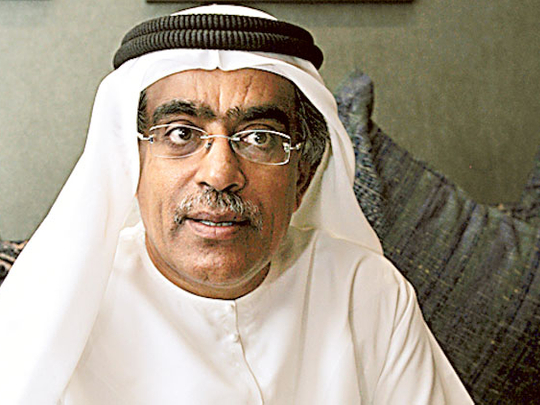
Dubai: It was a special moment for Ahmad Al Kamali on Friday during the Standard Chartered Dubai Marathon. The man who was instrumental in launching the event on November 27, 1998, and is the marathon’s general co-ordinator and president of the UAE Athletics Federation, could not control his emotions after seeing the sea of people that turned up to take part. The Dubai Marathon, which began with 150 runners in 1998, broke the record for maximum participation with more than 24,000 people turning up for the run. And, with thousands of supporters lining the streets, there were nearly 50,000 people in total at the event.
An excited Kamali, after a walk down the course to get a feel of the enormity of the Dubai Marathon, spoke to Gulf News in depth about the rise of the event to achieve a place on the world map, the ever-increasing numbers taking part, the continual improvement in times and his plans for the future.
How does it feel after staging the biggest Dubai Marathon in terms of participants this year?
It is simply fantastic, not only in terms of the large turnout, but also in terms of the quality of running. Five athletes finishing under 2 hours and 5 minutes and 14 athletes completing the event under 2:10 is a great achievement and a moment to cherish. What makes it very special is the fact that the Dubai Marathon has become the second fastest marathon in the world after the Berlin Marathon.
Why do you think Dubai Marathon has progressed with every the year in terms of turnout?
We staged the first marathon in 1998 with just 150 runners and prize money of just Dh50,000, but from the day we first staged it we had a dream to make it one of the best marathons in the world. This huge growth would not have been possible without the support of His Highness Shaikh Mohammad Bin Rashid Al Maktoum, Vice-President and Prime Minister of the UAE and Ruler of Dubai, and the people of UAE, who turn up in large numbers every year. The support from all our sponsors, the Dubai Sports Council, the government and all its departments, have also played a massive role in the event’s success.
Do you have any goal in mind next year to make it better than this year?
The success of the Dubai Marathon is mainly due to the effort that is put in to make it better every year. We make sure that we maintain the momentum and create the right environment for the event. This year we crossed the 20,000 mark in participation numbers and our next year’s target is to try and get more than 30,000 people to register for the event. We also want to improve the timing of the course. My advice to every runner is to start preparing early and be ready for the 2014 event.
This year there was dense fog and some athletes have even remarked that it was a bit humid at times, so do you have any plans to counter that?
We have been staging the Dubai Marathon during the last two weeks of January and have been now witnessing a change in weather for the last few years. So next year we will try and stage the Dubai Marathon on a Friday during the first two weeks of January.
Does the Dubai Marathon have the capacity to take in more runners with the increasing response to the event?
Yes, the course we have is fantastic. It is a matter of great pride that, despite nearly 24,000 people running, there wasn’t any accident. It was so nice to see children and parents enjoying the event. We value the safety of every runner and I am happy that every volunteer did a good job to make it safe and comfortable for every runner.
What do you feel about the domination of Ethiopian runners and the fading away of Kenyans, who used to clinch top slots in this race?
I feel the Ethiopians swept the titles mainly because they were more ready than the Kenyans for our marathon. Next year we may invite more Kenyans as we want the marathon to be very competitive. It would have been a strong challenge for the Ethiopians had Kenya’s Martin Lel not pulled out at the last minute.
You must be happy that two runners from Eritrea clinched the top two positions in the 10k race?
Eritrea has got some very strong middle-distance runners. They are also beginning to make their mark in long-distance running. We want more nationalities to compete and win.
So what about UAE nationals? Has there been any improvement in their participation numbers?
We are not really happy with the response, but we are working hard towards attracting more nationals to come and run in the event. However, we have seen a marked improvement in the turnout for the 3km run, which shows that they [local people] are taking an interest. We have seen a rise in the number of UAE women taking part, especially youngsters.
Is the Dubai Women’s Run having an impact in attracting more women into running?
We are focusing a lot on making the Dubai Women’s Run in November a bigger success. We have also plans to create a half-marathon for women. In future, we want the Dubai Women’s run to be at the same level of the Dubai Marathon and I would be very happy if one day I could see more than 20,000 women run in this event, too.











